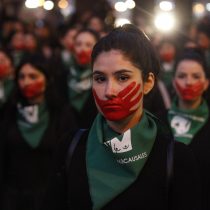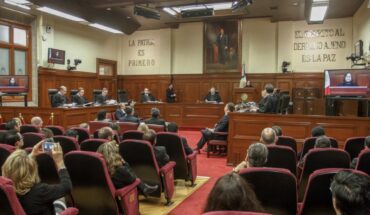
In August 2020, the Ipsos survey revealed that 68% of people in Chile are in favor of un causal abortion. A figure according to the massive support that feminist movements have had across the country. According to data disseminated by the Human Corporation, in recent years, it has been estimated that women in the country would perform between 60 and 70 thousand abortions induced per year, i.e. about 192 abortions a day.
For its part, data delivered by the Miles Corporation, ensure that the interrupted gestations would reach 300 thousand per year. These estimates assume that most of these are made clandestinely concrete, without being served in health services. That is, a scenario that continues to be pursued in the Chilean Penal Code, since it is not contemplated in the legal interruption of pregnancy in three cases.
For community psychologist and feminist Ana Maria Vera, “abortion is a reality in every country in the world and in all ages, and the state must safeguard the safety and health of women, especially those most precarised by this model that produces social, economic and gender inequities. A change in legal rules is urgently needed, seeking the necessary conditions to enable the freedom to decide.”
But that’s not all; feminist demands and sexual dissents go through multiple themes not only at the health level, but also in education, the environment, justice, among other areas. Therefore, social organizations seek to promote an express recognition of the sexual and reproductive rights of women, sexual and gender diversity and dissent in the new Constitution, preventing “minority conservative sectors from seeking to limit these social processes through illegitimate institutions such as the Constitutional Court, as with the three-causal abortion law and the gender identity law” , notes the lawyer and member of the Dissident Collective Here and in the Quebrá del Ají de Temuco, Diego Lagos.
On the other hand, the gender parity assured in the constituent body about the possibility of putting these historically unvisibilized issues into political discussion. “It is extremely important that feminists be part of the constituent body to demand and make visible the many demands that have been silenced for years, such as the right to a life free from violence,” says Kelluzomoguen, Licanray’s feminist collective, Camila Reche Alvarez.
In addition, other demands, just as relevant, are the urgent support required by people who play a role in caring for children, the elderly and the sick, who are mostly women and without relevant financial contribution from the State. “This political discussion is not only about health, or legislation, but a dispute over achieving higher levels of democracy, in a country with a deep crisis of care,” concluded psychologist Ana María Vera.





